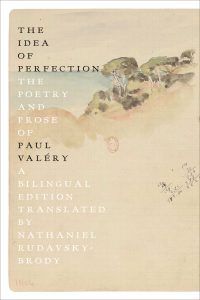“Secret Ode”
The fall so splendid, the end sweet,
The struggle forgotten, what bliss
To stretch the glistening body out
Against the moss, after the dance!
Never has such a glow
Shone out in victory
As these bright sparks of summer
Across a forehead sown with sweat!
But touched at last by the Dusk’s light,
This body that achieved so much,
That danced, that bested Hercules,
Dissolves among the clumps of roses!
So sleep, beneath sidereal steps,
Conqueror slowly come undone,
For now the Hydra in the hero
Unfurls its endless rows of heads . . .
Behold what Dog, what Bull, what Bear,
What signs of sweeping victory,
The soul imposes, entering time
Without resort, on formless space!
Fin suprême, étincellement
Qui, par les monstres et les dieux,
Proclame universellement
Les grands actes qui sont aux Cieux!
*
“Lost Wine”
One day I tossed into the Ocean
(I can’t recall beneath what skies)
A kind of offering to the void,
An entire remnant of precious wine . . .
Who willed your loss, O alcohol?
Perhaps a prophet led my hand?
Perhaps the worries of my heart,
Dreaming of blood and spilling wine?
A brief effusion of rosy smoke,
And then the sea resumed, as pure,
Its regular transparency . . .
Wine lost, and drunken waves! . . . I saw
The most extraordinary figures
Leaping in the bitter air . . .
_____
the void: inspired by Carnot’s Principle (later the second law of thermodynamics), according to which the entropy of a system always increases over time—that is, order will be dissipated in the void.
__________________________________

From The Idea of Perfection: The Poetry and Prose of Paul Valéry; A Bilingual Edition. Published by Farrar, Straus and Giroux April 2020. Translation and Introduction copyright © 2020 by Nathaniel Rudavsky-Brody. All rights reserved.
Paul Valéry and Nathaniel Rudavsky-Brody
One of the major figures of twentieth-century French literature, Paul Valéry was born in 1871. After a promising debut as a young symbolist in Mallarmé’s circle, Valéry withdrew from public view for almost twenty years, and was almost forgotten by 1917 when the publication of the long poem La Jeune Parque made him an instant celebrity. He was best known in his day for his small output of highly polished lyric poetry, and posthumously for the 28,000 pages of his Notebooks. He died in 1945.
Nathaniel Rudavsky-Brody was born in Columbus, Ohio. He has translated the work of French and Belgian poets, including Benjamin Fondane, for which he was awarded the Susan Sontag Prize for Translation. He is the author of two volumes of poetry in French and one in English, and has worked as a typesetter, a programmer, and a private tutor in Greece.













